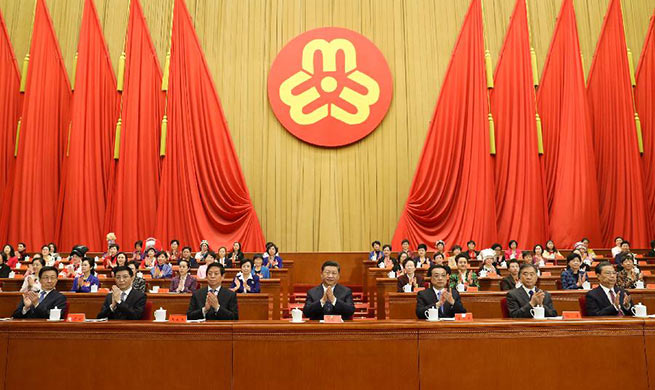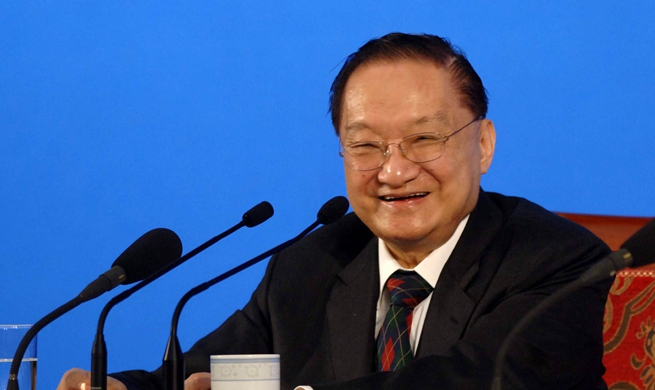WASHINGTON, Oct. 30 (Xinhua) -- A former U.S. senior diplomat said here on Tuesday that China is not a revisionist country in the current international system, and interests of the United States and China are not fundamentally incompatible.
Susan Thornton, former acting assistant secretary of state for East Asian and Pacific Affairs, made the remarks while attending a debate whether the long-term interests of the United States and China are fundamentally incompatible.
The Trump administration, in its national security strategy, labeled China and Russia as U.S. competitors and revisionist nations. Its recent trade and diplomatic provocations against China have triggered widespread fear that Washington is re-directing and shrinking its engagement with Beijing.
Thornton said that the United States and China "both have an interest in the continuation of the international system," while noting that the two countries are both permanent members of the UN Security Council.
"In this respect, I would argue that China is not revisionist, that China sees itself as wanting to prolong and continue the existing international order albeit with some changes," she said.
While holding the view that the interests of the United States and China are not fundamentally incompatible, Thornton said there are ways to manage the differences via diplomacy.
"We have many interests in common with China, and some of these are at a level of abstraction beyond which we normally think," she said.
"China and the U.S. are both interested in countering instability and conflict among regional hotspots," she said. "They are both interested in countering terrorism and extremism, countering large migrations of populations, pandemics, environmental and natural disasters, and other sources of instability, and problems in the world."
"Promoting prosperity for both of our countries and other countries in the globe is an obvious common interest," she argued.
As the two largest economies on the planet, the United States and China share interconnectedness in their economies which is important to both of the countries as well as the whole world, according to Thornton.
"While it is true that some of our interests are in conflict ... they must be managed through deterrence and diplomacy; while other interests are compatible and can be furthered with diplomacy and cooperation," she said.
All of the issues between the two nations regarding incompatibilities "can be worked on so that they become either manageable or less problematic," she added.
"It is not to say that there won't be tension in the relationship and that this tension could be actually constructive, but issues that may seem intractable, such as some of those we worked on with China in the past ... we have successfully managed and we have successfully gotten progress on," Thornton said.
Noting the economic and environmental challenges that the world is facing, Thornton said "without U.S.-China cooperation, we will not be able to affect any progress for the future of our future generations."
The debate is part of a string of events on U.S.-China relations co-hosted by the John L. Thornton China Center at Brookings Institution and the Paul Tsai China Center at Yale Law School.













